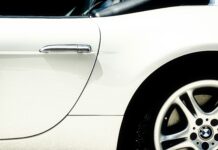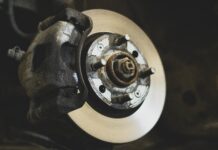The early morning tranquility or the anticipation of a drive can often be interrupted by an unexpected sound – the squeak of your brakes as you embark on your journey. This commonplace occurrence can range from mildly annoying to concerning for many drivers. Understanding why do my brakes squeak when I first start driving not only eases your mind but can also guide you in maintaining your vehicle’s health.
### A Symphony of Squeaks: The Nature of Brake Noises
Brakes are integral to vehicle safety, designed to stop your car efficiently and reliably. However, they are not immune to producing noises, especially at the start of a drive. These sounds, particularly squeaking, can be attributed to various factors, each telling a different story about your vehicle’s condition.
### Morning Dew: A Natural Phenomenon
One of the most benign causes of brake squeaks is the presence of morning dew. Overnight, moisture can accumulate on the brake rotors, forming a thin layer of rust. When you first apply the brakes, this rust gets scraped off by the brake pads, producing a squeaking sound. Typically, this noise dissipates after a few brake applications, as the rust layer is completely removed.
### The Material Matters: Brake Pad Composition
The type of material your brake pads are made from can also influence the sounds they make. Brake pads are crafted from various materials, including metallic, ceramic, and organic compounds, each with its own set of characteristics and noise levels. Metallic pads, for instance, are durable but more prone to squeaking compared to their ceramic counterparts. If the squeaking bothers you, consulting with a mechanic about the best type of brake pads for your driving needs and comfort might be a good step.
### A Sign of Safety: Wear Indicators
Brake pads are equipped with wear indicators – small metal tabs that make contact with the rotor once the pad material wears down to a certain point. This contact produces a high-pitched squeal, serving as an audible warning that it’s time to replace your brake pads. If the squeaking persists beyond the initial drive, it may be time for an inspection.
### Accumulated Dirt and Debris
Just as with the rest of your vehicle, brakes can accumulate dirt, dust, and debris, which can lead to squeaking noises. These particles can get caught between the brake pad and the rotor, leading to occasional sounds during brake application. Regular cleaning and maintenance can help minimize this issue.
### Taking Action
While occasional brake squeaking at the start of a drive is often harmless, consistently noisy brakes should not be ignored. It’s crucial to differentiate between the temporary squeaks caused by natural factors and the persistent noises that signal a need for maintenance or repair. Scheduling regular brake inspections as part of your vehicle’s maintenance routine can ensure that any potential issues are addressed before they escalate.
In conclusion, the occasional squeak of brakes at the beginning of a drive is a common phenomenon with several potential causes. From natural rust formation to the characteristics of brake pad materials, understanding these factors can help you maintain your vehicle’s safety and performance. Remember, when in doubt, consulting with a professional can provide peace of mind and ensure that your car remains in optimal condition for the road ahead.







